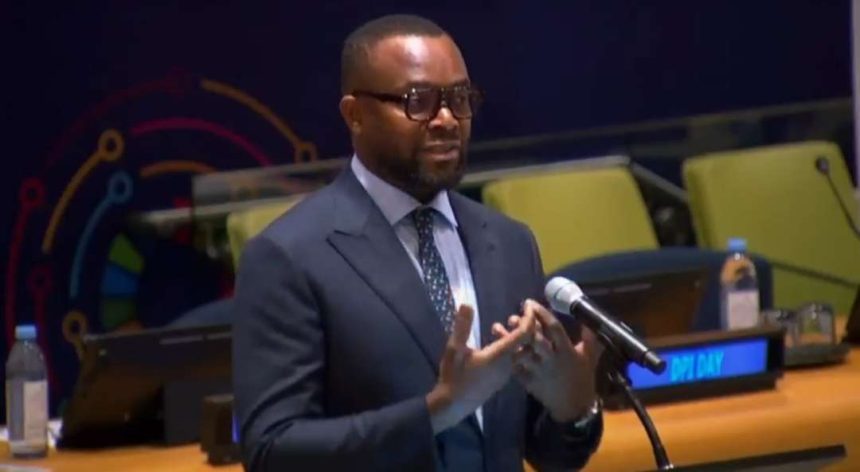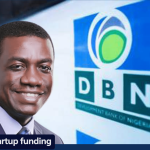SPEECH BY HONOURABLE DR. ‘BOSUN TIJANI , MINISTER OF COMMUNICATIONS, INNOVATION, AND DIGITAL ECONOMY, ON “DIGITAL PUBLIC INFRASTRUCTURE” AT THE UNITED NATIONS OPEN SOURCE WEEK 2025 IN NEW YORK, USA, ON THE 19TH OF CONVOCATION JUNE, 2025
Excellencies, colleagues, and distinguished delegates,
Permit me to start by expressing my appreciation to the United Nations Office for Digital and Emerging Technologies, and to the Under-Secretary-General and Special Envoy, Mr. Amandeep Singh Gill, for his leadership on this global conversation.
I am deeply honoured and consider it a privilege to address this gathering on this important topic.
In my country; Nigeria and across many countries in Africa and all over the world, people are asking a simple but profound question: “Can I trust my government to walk with me through life’s most critical moments?”
- When a young person seeks an education
- When a parent struggles to access healthcare
- When an entrepreneur looks for access to capital or markets
These are not merely transactions. These are life events, and in them lie opportunities for governments to either build trust or deepen apathy.
Sadly, the latter prevails in many places. A trust deficit, fuelled by disjointed services, bureaucracy, exclusion, and outdated systems, has eroded the sacred contract between the people and those who govern them.
Thoughtfully designed and deployed technology offers a unique opportunity for nations to rebuild that trust —by allowing the state to be present in the everyday journeys of its citizens.
Not as an intruder. Not as a bystander. But as a quiet, intelligent, and enabling force—responsive, respectful, and reliable.
This for me is the promise of Digital Public Infrastructure.
DPI is not just an evolution of e-government —it is a new form of social infrastructure, one that offers a modular, open, and interoperable foundation for innovation to thrive and public services to scale.
Whether it’s the foundational layer of digital identity, the connective layer of payments, or the data-sharing layer that enables consent-based service Delivery, DPI gives us a chance to stitch together fragmented systems into a coherent whole.
And the results are not theoretical —they are already transforming societies.
In India, the Aadhaar-enabled stack became the foundation for inclusive financial services, powering over 400 million bank accounts and enabling social protection at scale.
In Nigeria, our own digital identity initiative —together with our interbank settlement system has catalyzed the rise of an extraordinary fintech ecosystem.
The fusion of identity, payments, and open banking regulation has turned Nigeria into Africa’s startup capital, with the highest number of unicorns that are solving real-world problems.
Singapore shows how DPI can orchestrate seamless city-state governance; Estonia reminds us of what it means to digitize citizenship itself; and Finland teaches us that the citizen experience must be mapped around life events, not government silos.
But perhaps the most important lesson from all these experiences is that: DPI works best when designed with principles —openness, inclusion, privacy, security, and interoperability —not just with code.
To fully realise the power of DPI, we are prioritising five things in Nigeria:
- Investment in foundational infrastructure—connectivity, cloud, energy, and skills. Including Project Bridge, 3MTT, Rural Connectivity Project and our National Data Park.
- Establishing legal and governance frameworks that preserve rights and promote innovation. Including National Digital Economy and e-Governance Bill and Our National DPI Framework.
- Championing open standards and modular design, allowing DPI to evolve with time. Including our DPI Standards.
- Activating and animating a DPI ecosystem that enable startups, civic tech, and local innovators to build on the DPI rails.
- And above all, leading with a moral clarity that puts people at the centre —not profits, not platforms, not politics.
Let me close by returning to where I began: trust. If our citizens cannot trust that governments will show up when it matters most, we will continue to see fractures in the very fabric of our democracies.
But DPI gives us a once-in-a-generation opportunity —to move from the transactional state to the responsive state.
From silo-ed institutions to integrated digital societies. From exclusion to radical inclusion.
So, let us not just build DPI systems. Let us build a new compact of trust, with technology as the bridge and leadership as the compass.
Let us do it together.
Thank you
Hon. (Dr.) ‘Bosun Tijani
Minister of Communications, Innovation, and Digital Economy
Federal Republic of Nigeria
19TH JUNE, 2025






